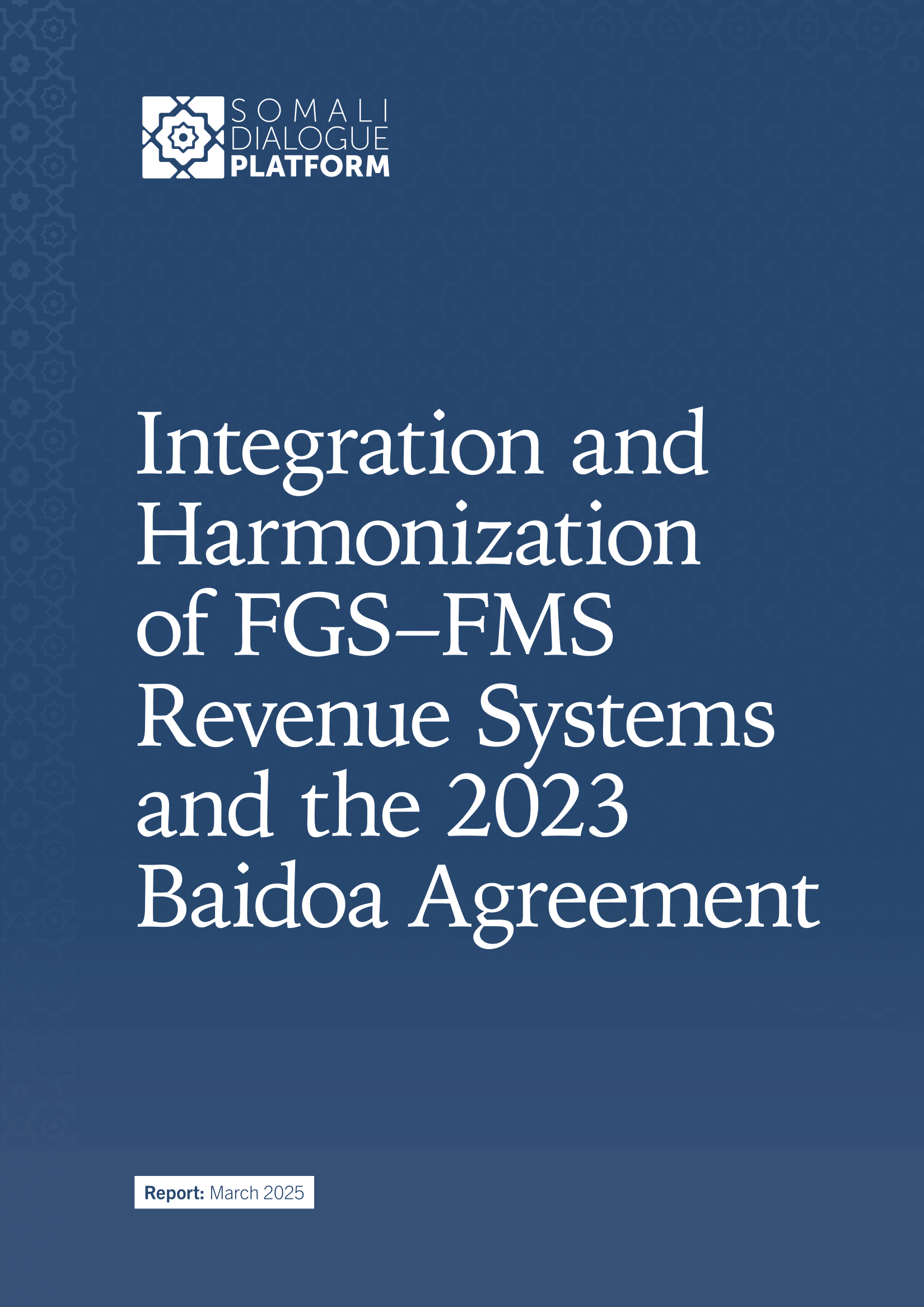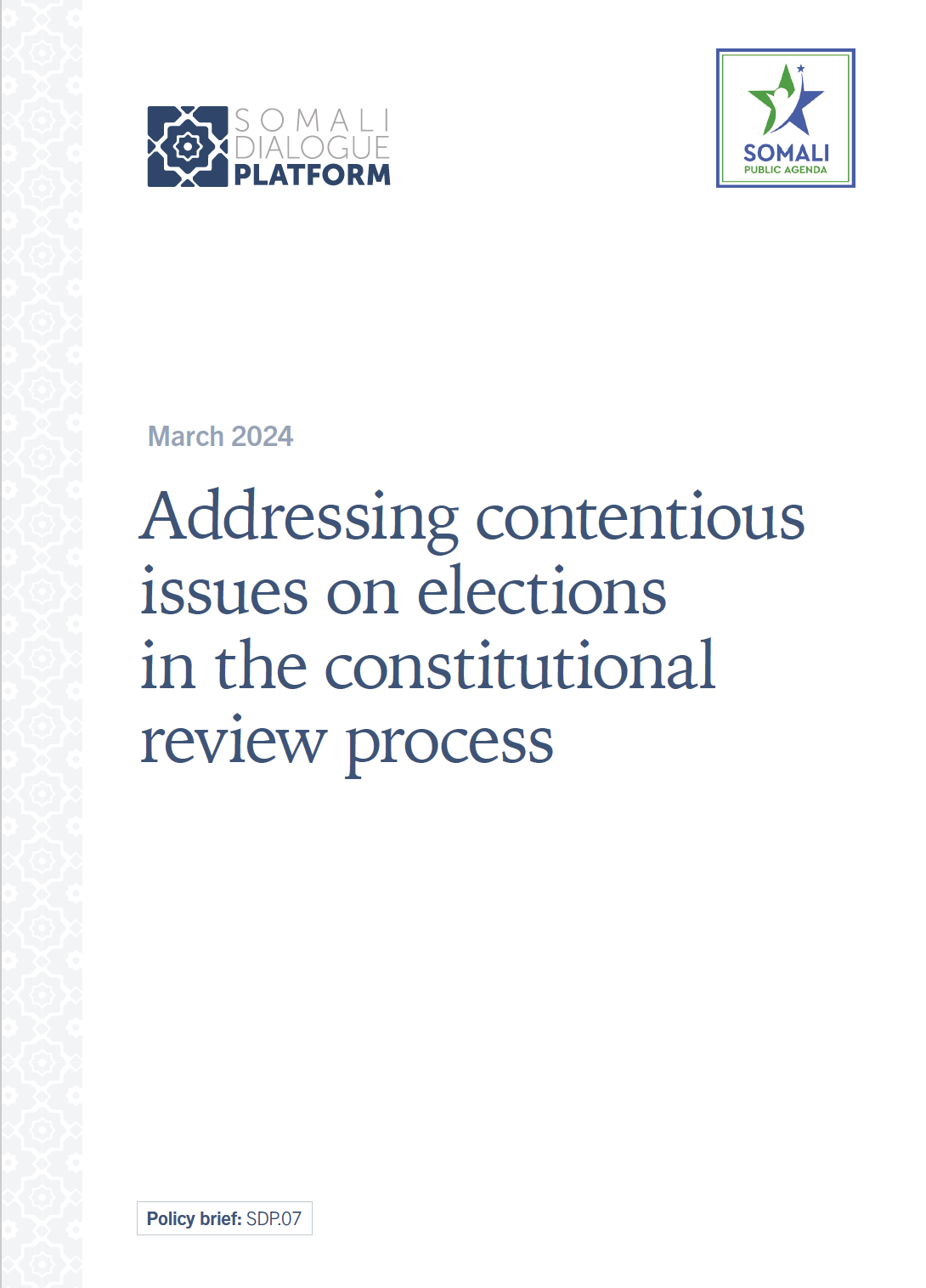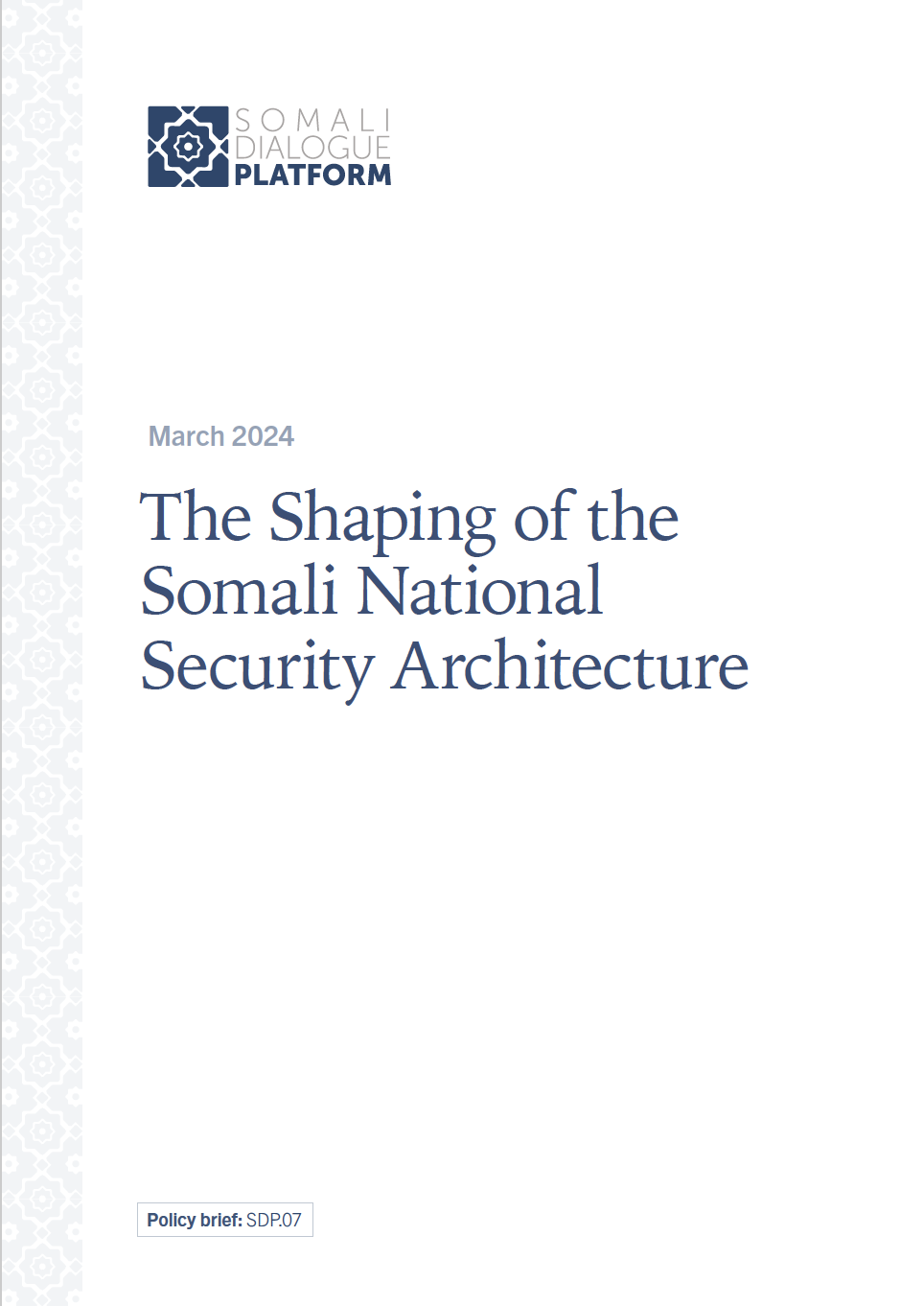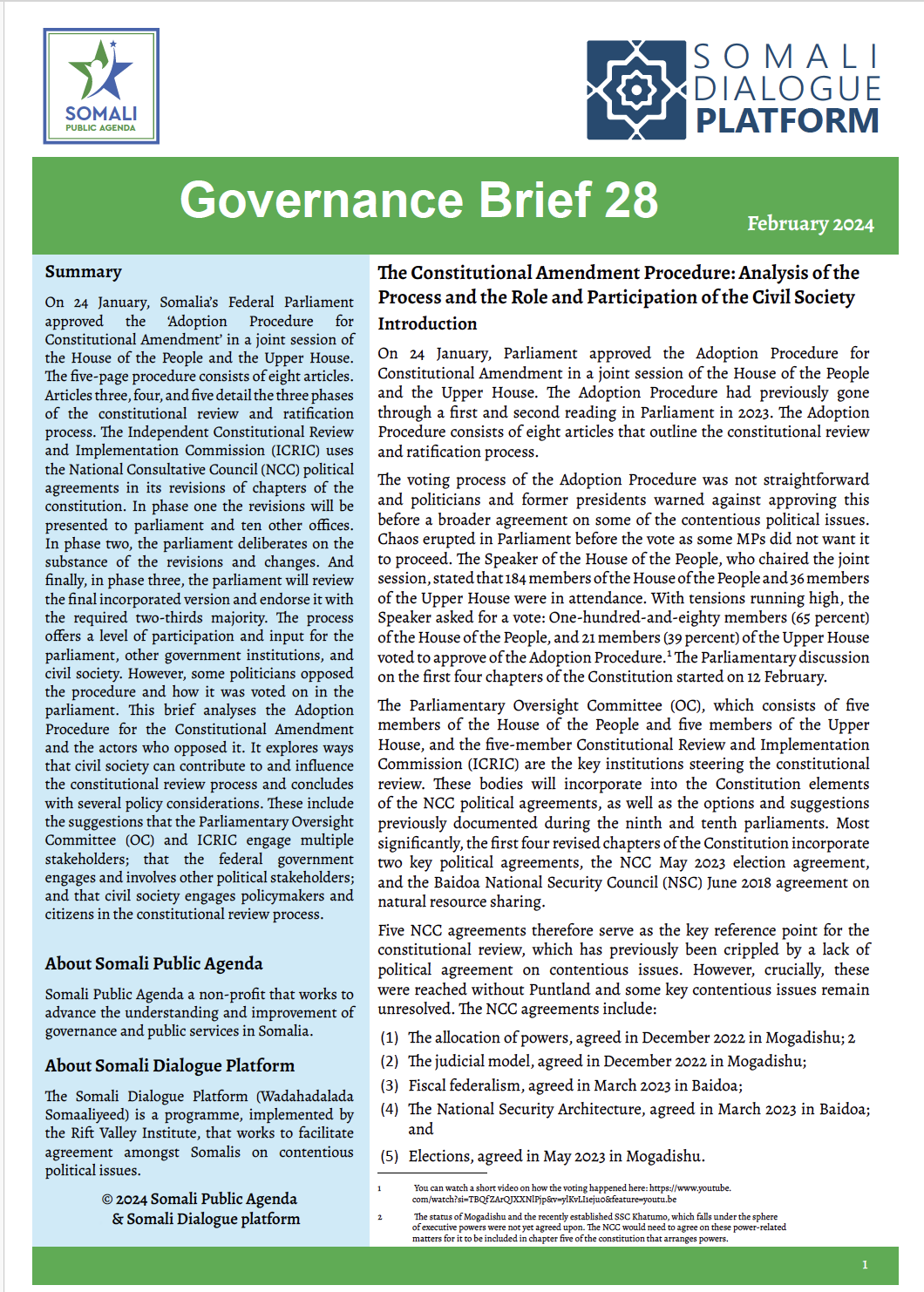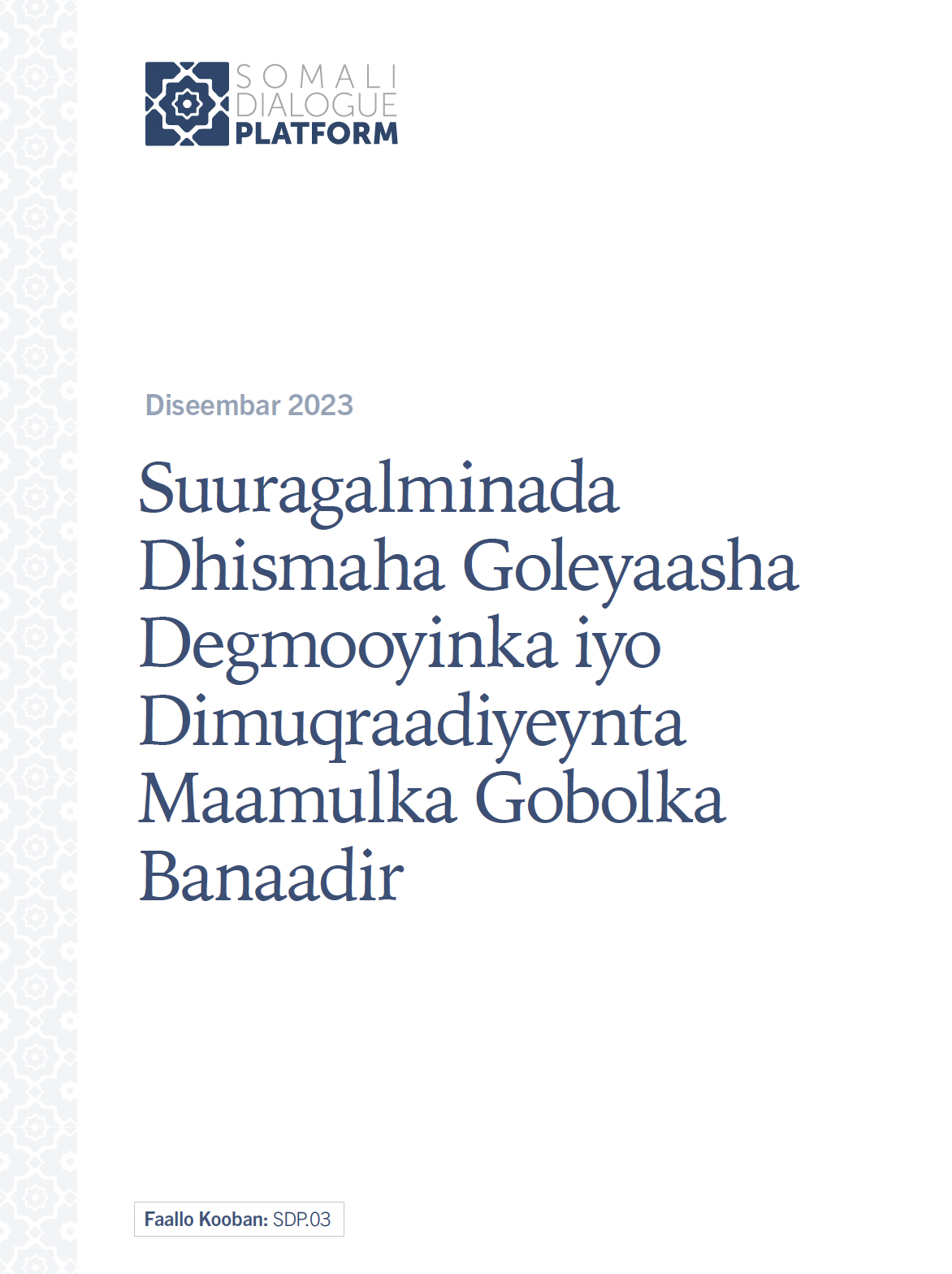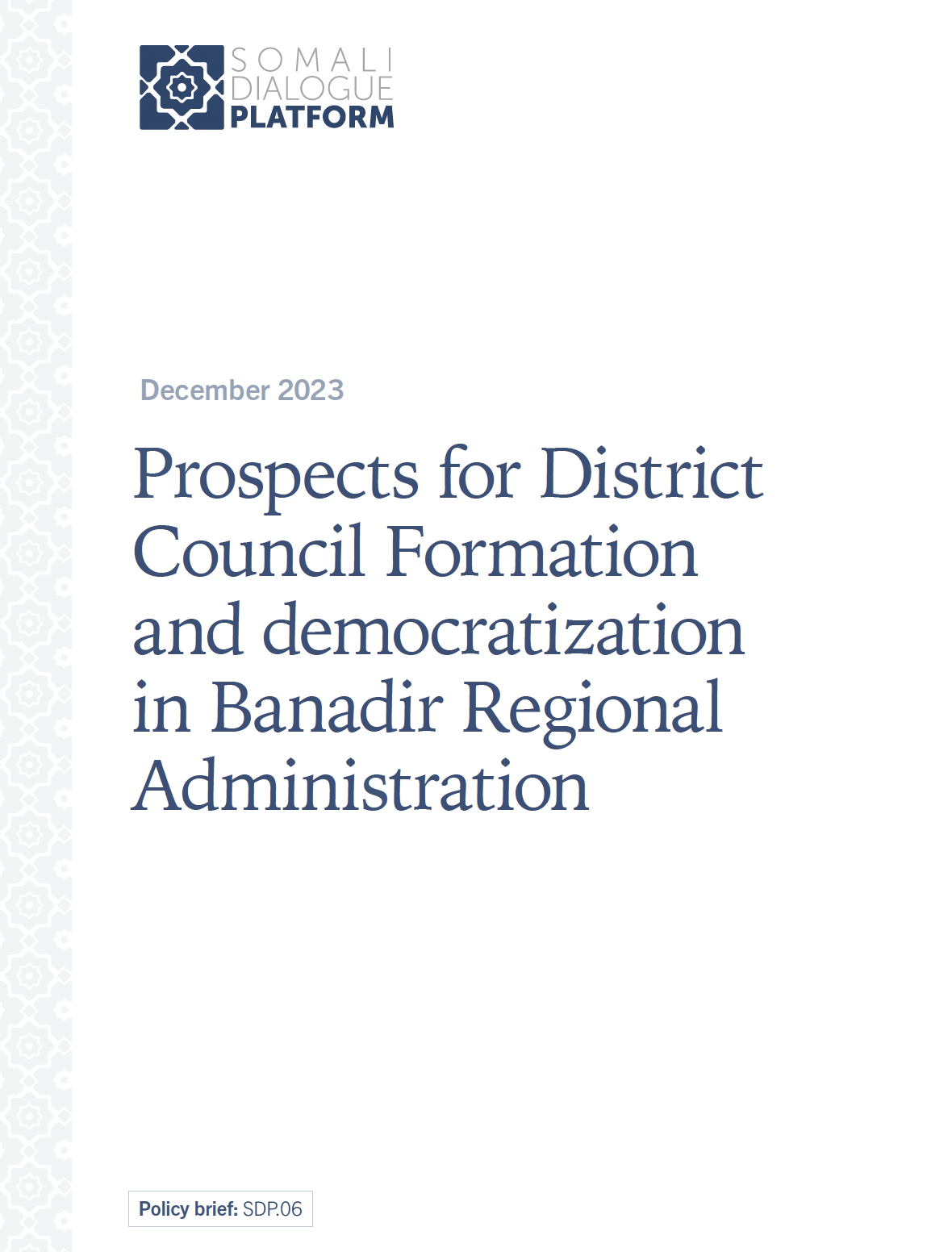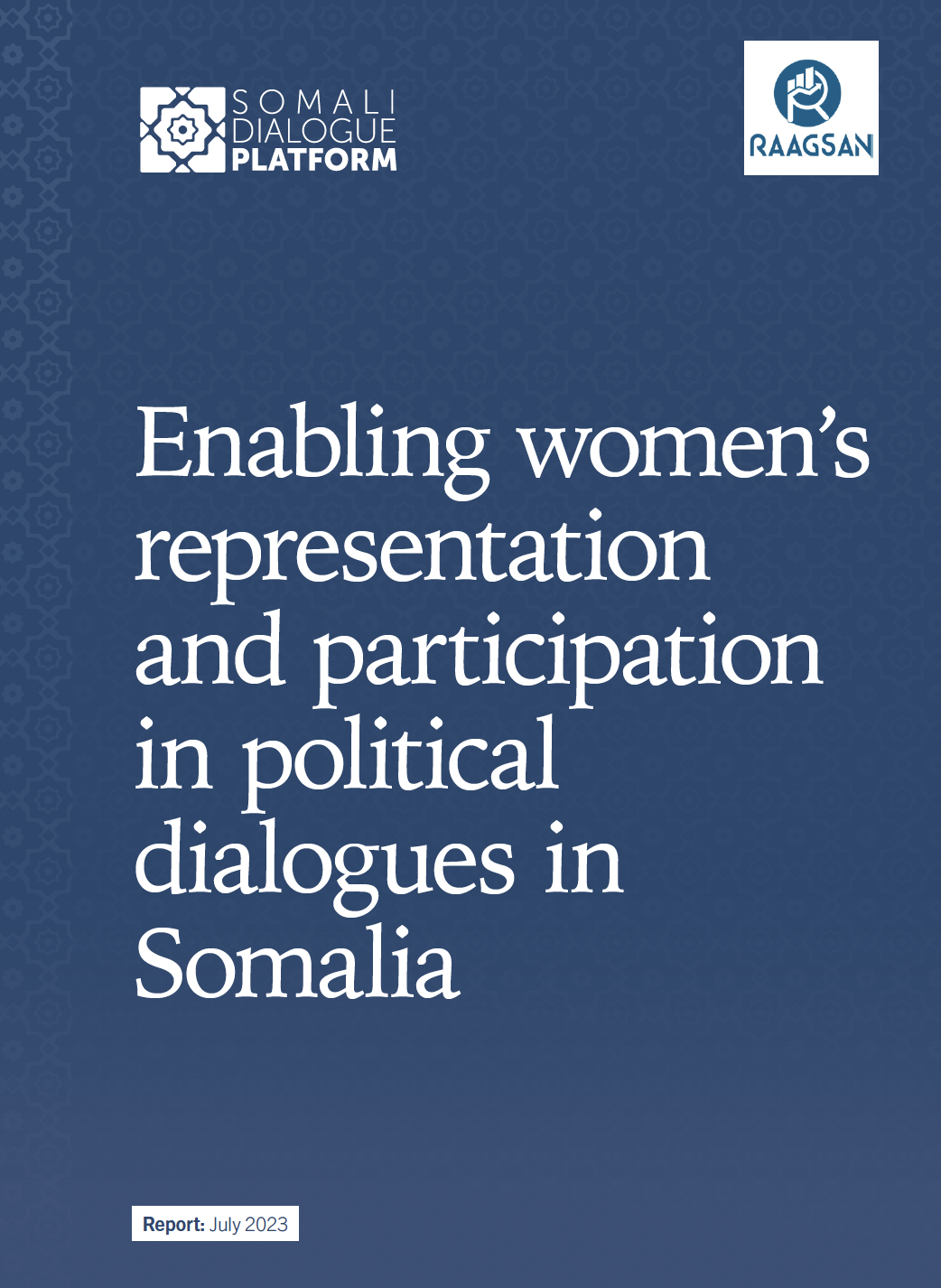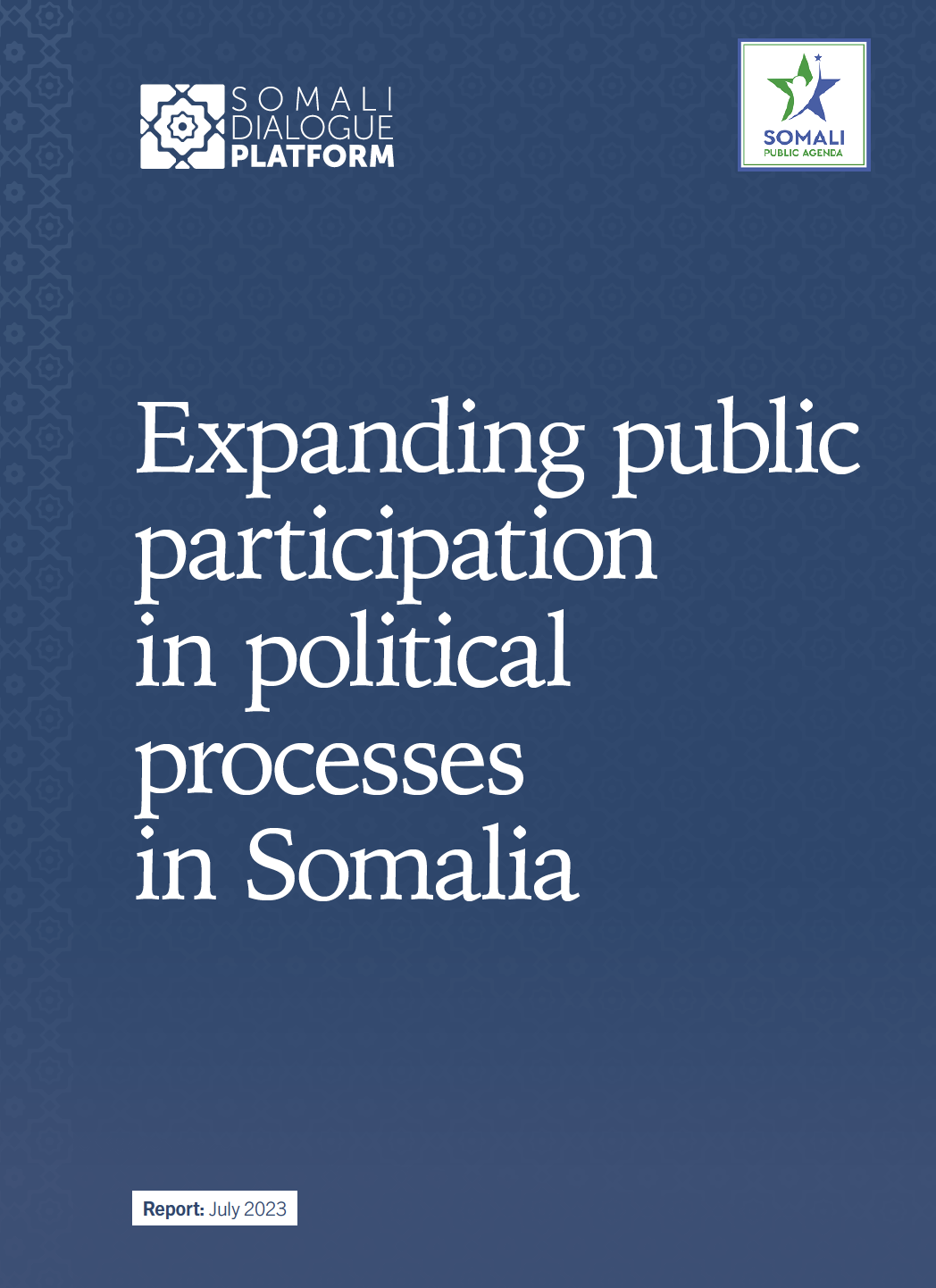On 15 April 2025, during a visit to the city of Las Anod in Sool, Prime Minister Hassan Abdi Barre officially declared the federal government’s recognition of SSC-Khaatumo (SSC-K hereafter) as a federal member state, marking an important milestone…
RVI publishes books, research reports, research papers, briefings and meeting reports in a range of formats. Publications cover policy, research, arts, culture and local knowledge in the countries of eastern and central Africa. Research publications—books, reports and papers—are peer-reviewed. Some RVI publications are also available in French and/or Arabic.
The RVI is a signatory of the Budapest Open Access Initiative (2001); all publications are free for download in PDF format under Creative Commons licences. The views expressed in books and reports published by the RVI are those of the authors, not the Institute.
SEARCH
PUBLICATION TYPE
LANGUAGE
REGION
COUNTRY
Tax revenue collection in Somalia has, during the past decade, been hampered by—among other things—weak institutional capacity, lack of sound tax administration systems and a fragmented administrative structure that has often placed the Federal Government of Somalia (FGS) at…
Introduction On 27 May 2023, Somalia’s National Consultative Council (NCC) agreed on elections at both a federal and state level.1 Unified local council elections were envisaged to start at district-level elections across all Federal Member States (FMSs) in June…
Executive summary This policy paper assesses the revised National Security Architecture (NSArch) in Somalia, pinpointing critical deficiencies and presenting policy recommendations to fortify the national security framework. Central to this analysis are questions surrounding the effectiveness of the NSArch,…
On 24 January, Somalia’s Federal Parliament approved the ‘Adoption Procedure for Constitutional Amendment’ in a joint session of the House of the People and the Upper House. The five-page procedure consists of eight articles. Articles three, four, and five…
Soo koobid Find the English version of this briefing here….
Summary Find the Somali version of this briefing here. …
Introduction One of the most significant recent developments in the prolonged struggle against al-Shabaab in Somalia has been the success of military operations led by the Somali National Armed Forces and allied self-defence militias known as Ma’awisley. Ma’awisley—named after the…
SUMMARY Somalia grapples with unique cultural, societal, and structural hurdles that hinder women’s access to political processes. Despite introducing a non-legally binding quota, the most recent federal elections in 2022 saw a decline in women’s parliamentary representation. Beyond this,…
Summary In recent history, political processes in Somalia have been dominated by a narrow set of political and business elites, armed actors and external players. Following the collapse of the government in 1991, there were a series of conferences…
Recent Publications

Rethinking Ethiopia II: Youth and politics
February 26, 2026
Seminar report Rethinking Ethiopia, a collaborative essay competition initiative between Addis Ababa University’s Institute for Peace and Security Studies (IPSS) and the Rift Valley Institute’s (RVI) Peace Research Facility (PRF), offers a platform for Ethiopian youth to express their ideas

2025 Year in Review
February 16, 2026
The 2025 Year in Review provides an overview of the Rift Valley Institute’s work over the past year across eastern and central Africa. The report highlights RVI’s research and publication outputs, education and training activities, and public forums and convenings,

Rethinking Aid in Sudan and South Sudan
January 28, 2026
The brief draws on a joint convening held in Kampala, Uganda, in November 2025, which brought together more than 45 Sudanese and South Sudanese participants representing more than 30 grassroots organizations and international NGOs. Its primary objective is to amplify


